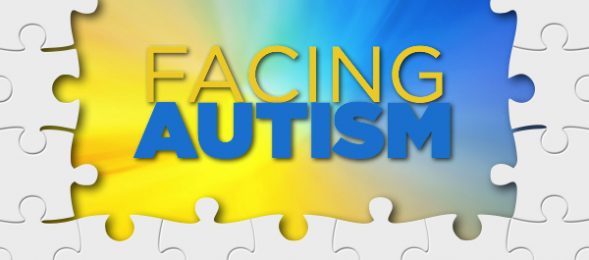You’ve probably heard this statistic by now: 1 in 68 children have autism spectrum disorder (ASD). The Centers for Disease Control (CDC) released this statistic from their most recent report just in time for April, which is Autism Awareness Month. The report, Prevalence of Autism Spectrum Disorder Among Children Aged 8 Years made headlines across the country.
The report revealed that 1 in 81 black children are on the autism spectrum and that black children were less likely to be identified with ASD than white children. It also revealed that black and Hispanic children who have ASD were more likely to have an intellectual disability than white children.
Despite all the statistics that this report gave us, there are a few disclaimers that need to be noted. We must note that the report was done in 2010 on eight-year olds in 11 states or sites. Many of the states included are not known for their diversity.
We must also note that the report includes the following statement: “network sites do not provide a representative sample of the entire United States, the combined prevalence estimates presented in this report cannot be generalized to all children aged 8 years in the United States population.” This means that a study that accurately represents the entire U.S. needs to be done.
As flawed as this report is, it still encourages us to learn more about autism. Here are seven things you need to know to get you started:
- Early detection of autism is extremely important. Early intervention can increase your child’s chances of improving developmentally. The American Academy of Pediatrics recommends that babies between 18 and 24 months should be screened for autism. The Modified Checklist for Autism in Toddlers (M-Chat) is a great tool that can be used when you take your child to the pediatrician for well visits.
- Autism is a spectrum disorder. It presents differently in each individual. We need to be respectful of and compassionate toward those differences.
- Autism is a not a dirty secret. We need to bring autism out of the shadows and discuss it more. Eradicating the stigma of autism is a crucial step toward autism acceptance.
- Children with autism grow up to be adults with autism. The cute little kid flapping his arms and lining up his toys will become a grown man one day. We need to do all we can to ensure that our children grow up to be as independent as possible. We need to equip them with the adaptive behaviors they will need to reduce the chances of being stigmatized when they are out in their community.
- You can’t beat the autism out of a child to make them act right. Efficient behavioral intervention techniques trump a good spanking when parenting children with ASD. If this does not work for you, then seek professional guidance on how you can effectively help your child.
- Autism is not a death sentence. Every parent remembers the day when they found out that their child has ASD. There was doom and there was gloom. As time progressed, we realized that our child’s diagnosis was the beginning of a new journey. It can be an emotional roller coaster but it is not the end of the world.
- Autism is not going anywhere. We have to look past our cultural and social biases and accept this fact. When the blue light bulbs go out and the blue t-shirts are returned to the closet, autism will still be here.
BMWK: What does autism awareness mean to you? What have you learned about autism that you did not know before?
